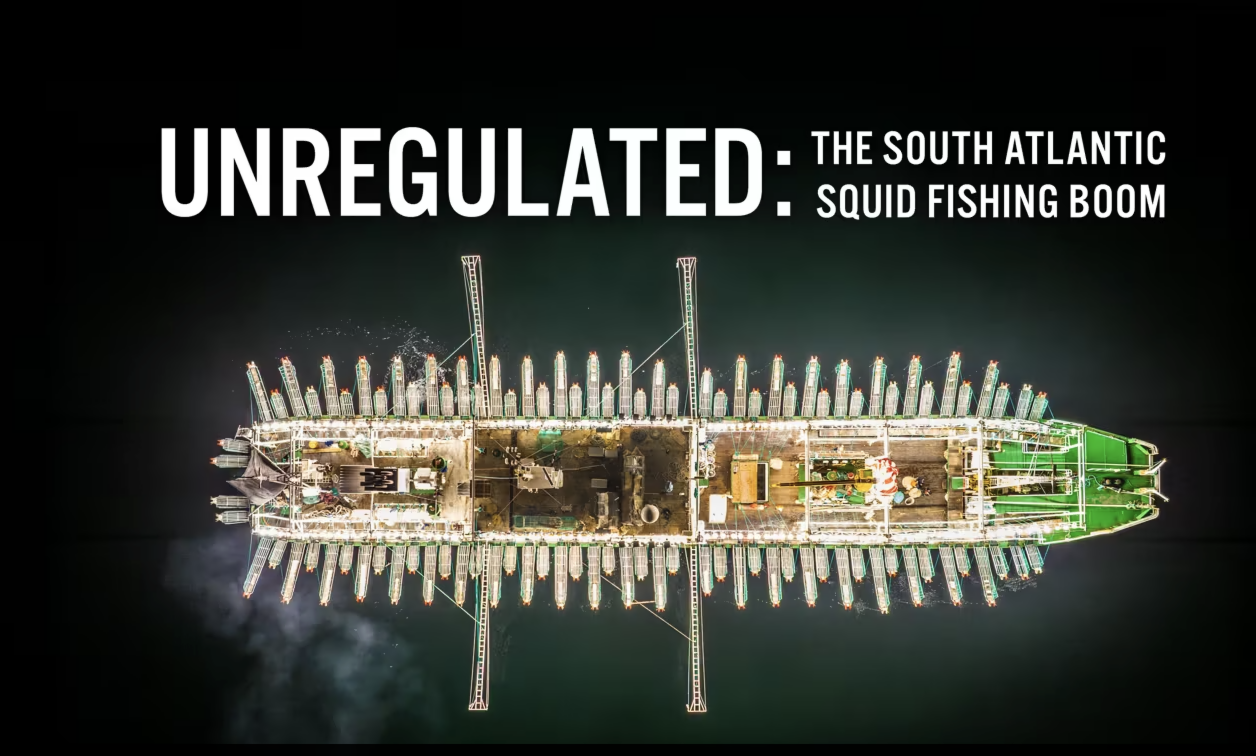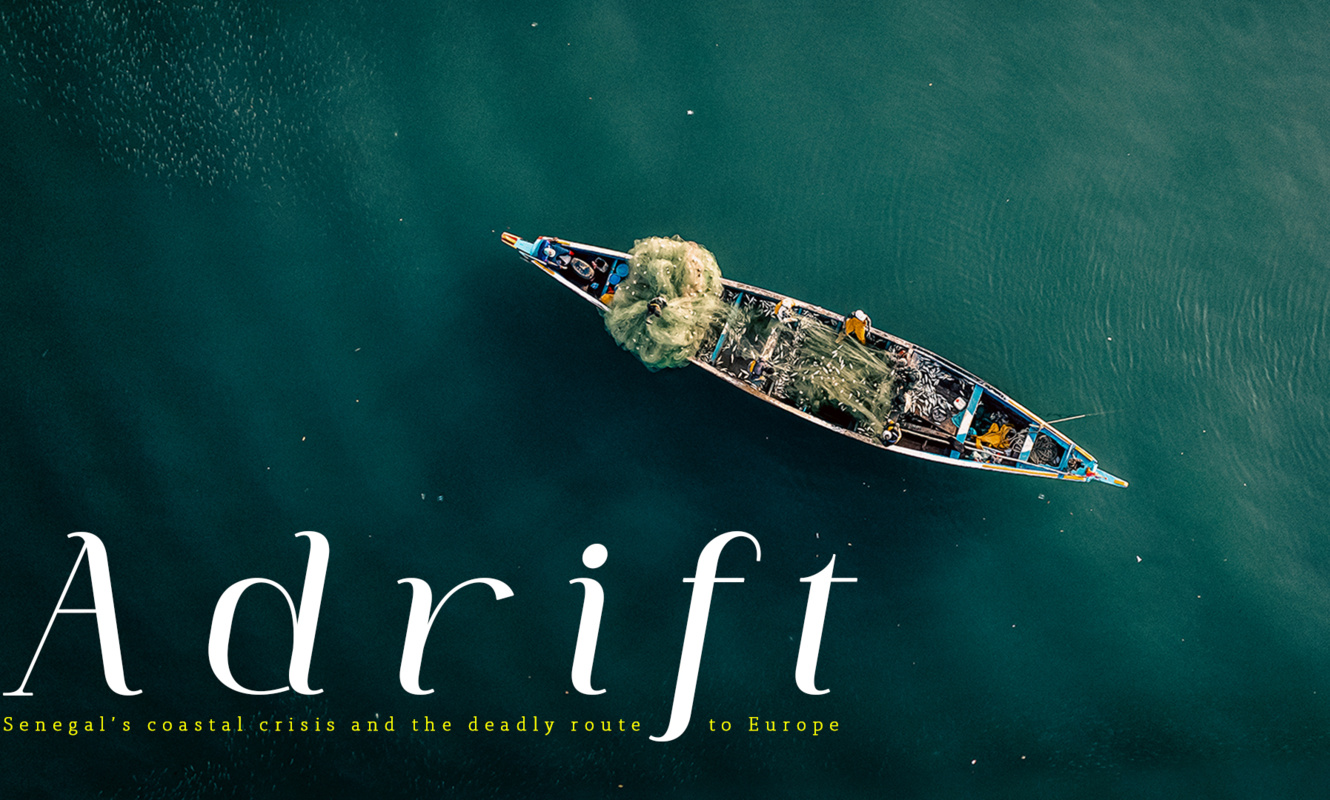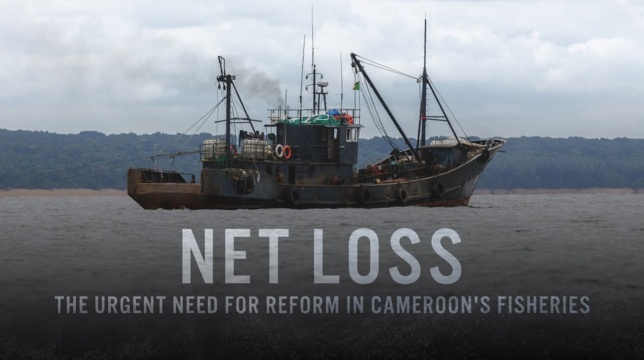Films

Unregulated: The South Atlantic Squid Fishing Boom
Hundreds of distant-water vessels are plundering squid populations in the Southwest Atlantic, driving a keystone species towards collapse and exposing workers to horrific abuses, according to a new investigation and film from the Environmental Justice Foundation (EJF).
17th September, 2025Unregulated: The South Atlantic Squid Fishing Boom
Hundreds of distant-water vessels are plundering squid populations in the Southwest Atlantic, driving a keystone species towards collapse and exposing workers to horrific abuses, according to a new investigation and film from the Environmental Justice Foundation (EJF).

Adrift: Senegal’s coastal crisis and the deadly route to Europe
Abdou and his father are separated by 1,500 km of ocean – a distance Abdou travelled in November 2020. He left Joal-Fadiouth, a fishing town in Senegal, and eventually reached Tenerife, a Spanish island off the coast of Morocco, after spending approximately fourteen days at sea in a wooden fishing boat. This route, increasingly used by people in West Africa to reach Europe, is considered one of the most deadly on Earth. For Abdou, his loved ones, and thousands of others along Senegal’s coastline, the fishing they once depended on is no longer an option. With few alternatives, more and more people are being pushed toward life-threatening journeys, seeking opportunities elsewhere. This escalating, intersecting crisis demands urgent attention and action.
13th May, 2025Adrift: Senegal’s coastal crisis and the deadly route to Europe
Abdou and his father are separated by 1,500 km of ocean – a distance Abdou travelled in November 2020. He left Joal-Fadiouth, a fishing town in Senegal, and eventually reached Tenerife, a Spanish island off the coast of Morocco, after spending approximately fourteen days at sea in a wooden fishing boat. This route, increasingly used by people in West Africa to reach Europe, is considered one of the most deadly on Earth.
For Abdou, his loved ones, and thousands of others along Senegal’s coastline, the fishing they once depended on is no longer an option. With few alternatives, more and more people are being pushed toward life-threatening journeys, seeking opportunities elsewhere. This escalating, intersecting crisis demands urgent attention and action.
Discarded: Hidden Overfishing in the EU
In European waters, fish are caught and dumped at sea to make room for more valuable catch. This practice, known as highgrading, is illegal, but unfortunately most cases go unreported.
This extremely wasteful and unsustainable practice puts pressure on struggling ecosystems and harms honest fishers’ livelihoods. Transparency is the key to protecting these ecosystems and ending this widespread illegal practice.
The High Seas: A Global Deal to Protect Our Oceans
The UN High Seas Treaty has entered into force, and we celebrate this exciting moment for ocean protection. It is evidence that a rules-based order can still deliver in the face of escalating environmental breakdown.

Sebelum Anda Naik Kapal: Risiko Tersembunyi dari Kapal Penangkap Ikan Jarak Jauh
15th December, 2025Sebelum Anda Naik Kapal: Risiko Tersembunyi dari Kapal Penangkap Ikan Jarak Jauh
Before You Board: The Hidden Risks of Distant Water Fishing
Every year, thousands of Indonesians work as fishers on foreign boats, promised high wages for work abroad. However, the reality of life at sea can be very different from what is promised. Once onboard, fishers are routinely overworked, abused, and exploited.
Are you thinking of taking a job on a distant water fishing vessel? Watch out for these warning signs:
🚩 The recruitment agency doesn't have a valid licence or has a bad reputation. A company's SIUKAK/SIUPPAK permit can be found on the official Ministry of Transportation website, while its SIP3MI permit can be checked on the Ministry of KP2MI website.
🚩 The recruitment agency offers loans
Loans through banks or cash advances from companies are often used to pressure crew into accepting low salaries or prevent them from terminating their employment contracts.
🚩 Lack of transparency about salary
The recruitment agency receives crew's salary in advance before transferring it to their personal account. This creates an opportunity for companies to illegally "take a share" of crew's salary.
🚩 Retention of identity documents
Confiscation of passports, ID cards, family cards, and other personal documents controls migrant workers' movements while working.
🚩 Offered work on Chinese-flagged ships
Several human rights organisations have documented various human rights violations and allegations of forced labor against Indonesian migrant workers on Chinese-flagged ships.
(The footage used is illustrative and does not necessarily show the boats discussed by the fishers.)
The Forests of Life: How Mangroves Sustain Ghana's Fisheries, Coastline, and Climate – an EJF film
Mangroves sustain communities, shield coasts, and store vast amounts of carbon. In Ghana they are vanishing fast – but their protection is within reach through safeguarding, restoration, and community leadership.
In partnership with Hen Mpoano, watch our short documentary, which reveals how local action and stronger policy can revive these vital ecosystems.
Together we are strong: Liberia's fishmongers building fairer fisheries
Communities for Fisheries: The lasting impact – an EJF film
Net loss: the urgent need for reform in Cameroon's fisheries
This film lays bare the impacts of illegal fishing on Cameroonian coastal communities, highlighting widespread lawbreaking, human rights abuses, and the urgent need for fisheries transparency.






